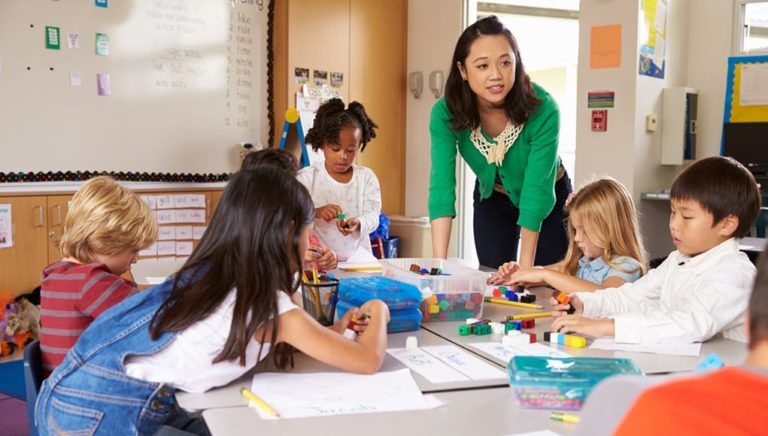
It has been challenging to teach, and it is even more difficult to teach and help young children grasp. Youngsters are impatient and immature enough to not comprehend the value of education. Therefore, to increase the effectiveness of education, children should be addressed and instructed in a structured manner. When teaching children, parents and educators should use caution in the following ways:
Remain Patient:
Children, like adults, get bored during class. Youngsters easily switch their focus from one item to another. It's not surprising, for instance, if a child acquiring letters wonders about the moon or loses himself in his imagination. Because this type of behavior is in their very nature and such behaviors simply serve to frighten and demotivate them, children shouldn't be reprimanded or penalized for it. Rather, educators should make an effort to be as understanding as they can.
Make Education Entertaining:
Parents and educators should ensure that kids look forward to learning. Different kinds of games, group projects, and guesses should all be used to make teaching engaging. When teaching, two-way communication is essential. For instance, when teaching addition, we can ask kids how they add numbers rather than telling them straight out. Children become more engaged, comprehend the lesson better, and become more proficient speakers as a result. Furthermore, kids don't experience boredom or monotony.
Children Should Be Gently Corrected:
Learning is a lifetime process and nobody is perfect. Children do err, of course, but they shouldn't be punished for these mistakes. It's important to provide them opportunities to avoid embarrassment. If they get strong corrections for their errors, they may become docile. The repeated use of statements such as "You are wrong" or "No, that's not the correct answer," for instance, will undoubtedly cause children to lose confidence and develop a negative impression of them. As a result, parents and educators should be sensitive to children's feelings and provide constructive criticism in a way that is supportive.
Using The Audiovisual Method:
Kids pick up knowledge more quickly by seeing and hearing. They should therefore be taught using films, documentaries, and movies in addition to classroom exercises. While e-class is becoming a common extra subject in schools, we shouldn't restrict the use of audiovisual aids to just one subject. Since many kids enjoy cartoons but dislike arithmetic, it might be very successful to teach them the subject through cartoons.
Give Them Praise For Their Efforts:
Nobody enjoys working on a project with no results. Parents as well as educators should also give youngsters rewards in order to inspire them and improve their performance. Incentives can take many forms, such as tiny tokens of appreciation. If a child receives a pencil box for completing his homework properly, for instance, he will undoubtedly strive harder the next time in the hopes of receiving a reward. These kinds of rewards provide kids a sense of fulfillment and happiness, which motivates them to keep improving.